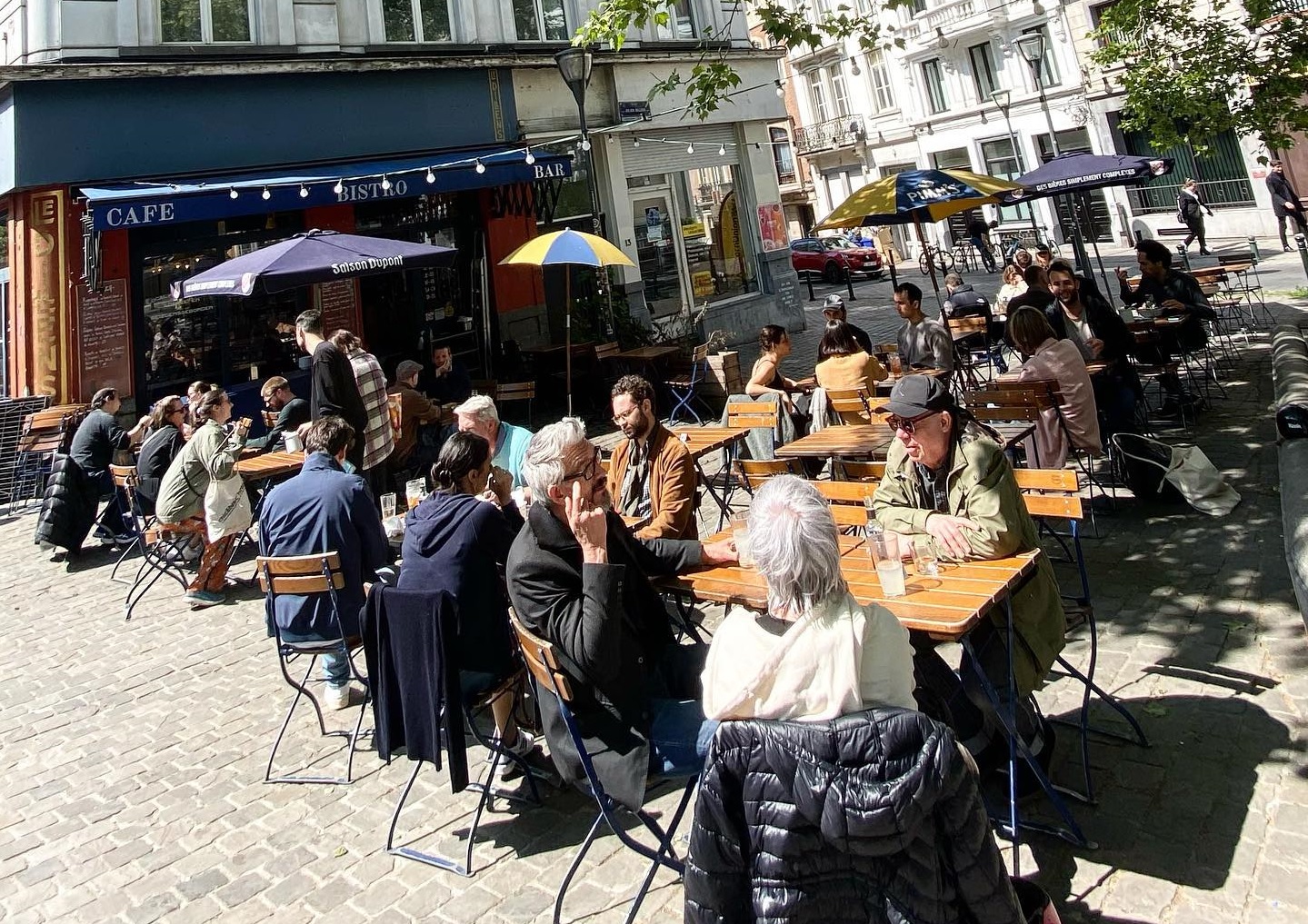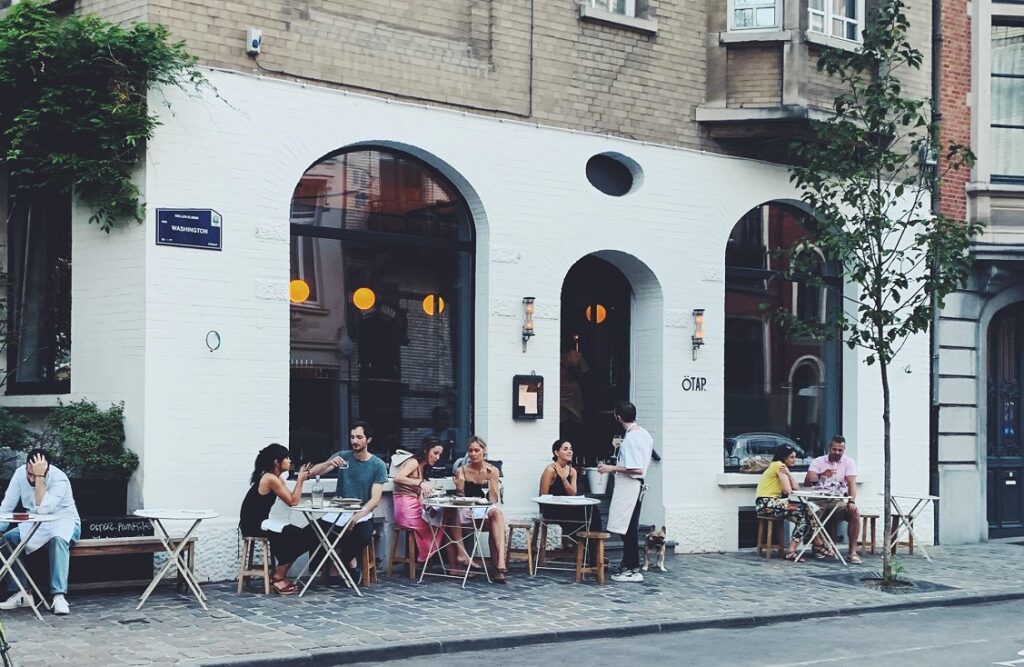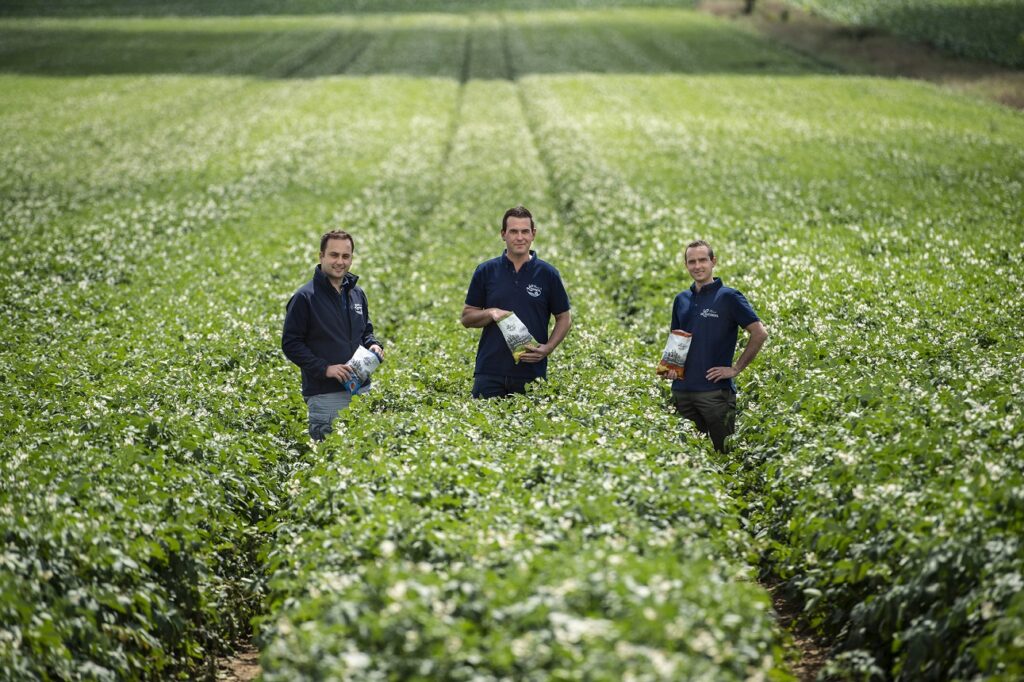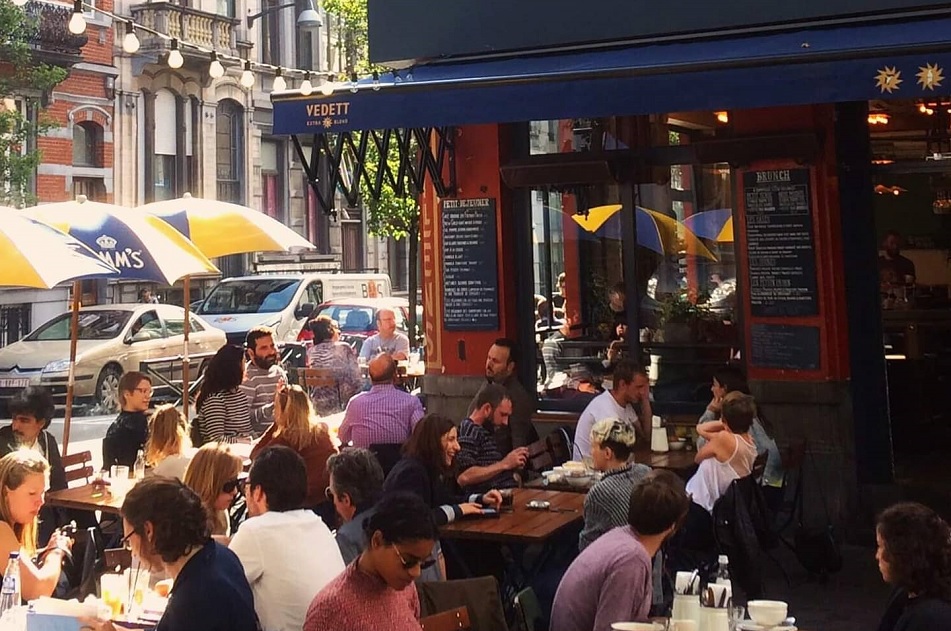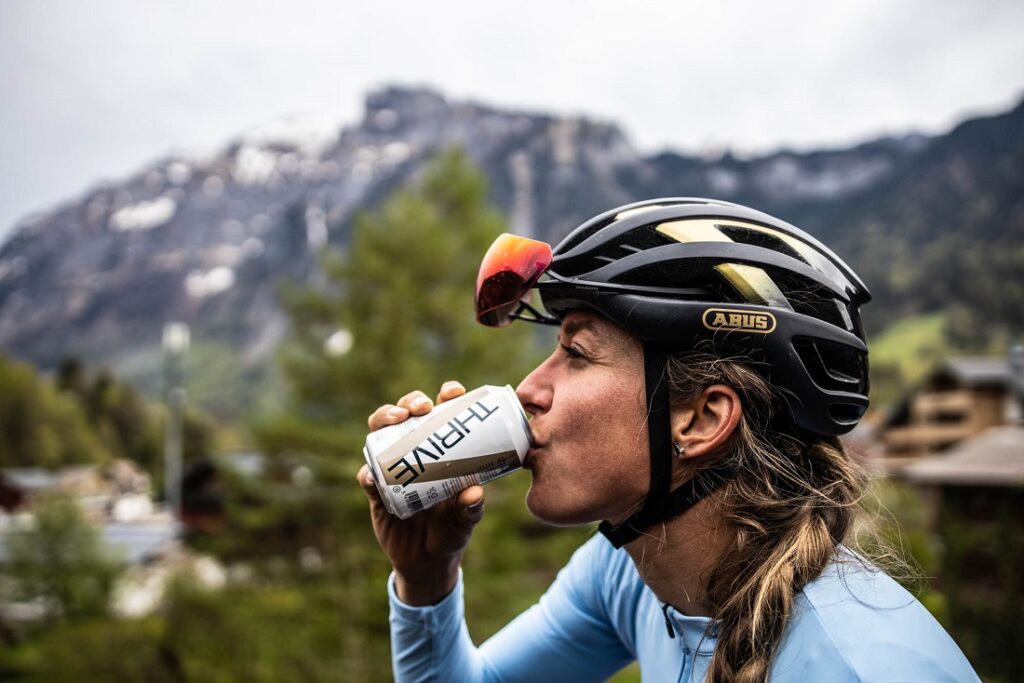What are the most delicious foods, refreshing drinks, coolest cafés and swankiest restaurants in Brussels at the moment? Here are some of the best.
Ötap
Restaurants have endured hard times over the last three years, with many having to change their business and operating models. Ötap (say “O-tap” - the umlaut is just there to decorate the name of the Philippian biscuit that the founder likes) has a few traits that set it firmly into the post-Covid times.
First, bookings are made through its simple website which ensures a guaranteed €55 per customer in case of no show. Second, there are two services: from 6:30pm to 8:50pm and 9pm till closing, with 30 seats at each service. We recommend the cosy alcove behind the bar or the strategic corner in the angle on the right, from where you can witness the whole main room; there’s also a more discreet room at the back with eight seats.
Third, the menu is unique and for sharing with your guests, at €60pp. Fourth, water is not the cash cow it used to be: it’s all you can drink, once you have paid €3pp. Bread, from nearby genius baker Khobz, is complimentary.
The menu is built like a dégustation, i.e. a succession of seven tasty dishes brought in beautiful handmade ceramic dishes that you share in your respective plates, which you will keep for the whole meal (you’ll get a dessert in an individual bowl, though).
Chef Loïk Tonnoir’s food is inspired by minimalist Scandinavian cuisine: a main element (fish, seafood, meat or vegetables), perfectly cooked, accompanied with a sauce, sometimes involving fermentation (pickles, lacto-fermentation, etc.). The cooking processes are varied: poached, grilled, Korean-barbecued, fried, steamed, you name it. You experience a whole array of techniques and original fusion cuisine pairings.
The drinks include an interesting beer selection, and even apple and pear cider, to match the original flavours of the food. All wines are natural, i.e. sulphur-free and hangover-proof, but more expensive than conventional ones: count €7-9 for a glass and €50 for a bottle. We advise you to buy a bottle given the number of dishes on the menu and the duration of the meal (2.5 hours). Raphaëlle, the sommelière, has a great selection of very original bottles, even outside the wine list. Service is very professional and smiling. One of the best restaurants in town.
Ötap
10, Place Albert Leemans 1050 Ixelles
Les chips de Lucien
If you eat local and seasonal, you may have heard about circuits courts or short supply chains. They are usually designed so fresh vegetables or meat products reach the consumer with as few middlemen as possible. However, three Belgian farmers, who are also cousins, used them for an industrial product: crisps from their potatoes, which they grow themselves.
The crisps bear the name of their common grandfather Lucien. Thomas, one of the cousins, does R&D, logistics and trade, Stany manages raw materials and staff, while Antoine deals with mechanics and computing. It’s a genuine family business located between Charleroi, Namur and Dinant: their fields are less than 5km from each other and the processing facility. They used to sell all their potatoes to the fry/chip industry but they are now gradually switching to crisp-to-be potatoes, a different species with a much higher dry content.
Their crisps are fabulous: unusually thick, crispy even when the bag is left open overnight, and healthy. They contain one-third less salt than industrial crisps, no gluten (used by industry to lower costs), no lactose (used to glue spices), and above all 30% less fat, thanks to batch processing allowing time to mechanically remove fat.
The range includes salt, salt & pepper, paprika (organic or not), pepper (organic), slightly salted (organic or not), spiced, non-salted (organic), pesto, truffles (only during end-of-year celebrations), onions, tomatoes and the newest one: piccalilli (pickles), a collaboration with Bister, a Belgian brand of mustards and sauces.
There are no additives, preservatives or flavour enhancers, the usual tools used to get people addicted to crisps. “We only count on their taste to make our customers come back,” Thomas explains. You can find them in Delhaize and Carrefour, as well as organic shops.
Café Le Dillens
Saint-Gilles is where you can meet a mixed crowd of locals, tourists young urban professionals and bobos, nomad workers and foodies. The Café Le Dillens, a stone’s throw from the Parvis de Saint-Gilles, is where you go for the excellent food and drinks as well as the vintage décor of an old café with modern equipment.
The food is seasonal, healthy and all homemade by two young talented cooks. Very creative – did you ever think of eating a shallot tatin with radish pickles or red beetroot en croûte de sel? – and colourful.
Although firmly anchored in European cooking culture, the cuisine is simple but modern. Hot drinks (coffee, tea, matcha) are all sourced. Some soft drinks are homemade, others come from fine suppliers like the nearby Fermenterie L’annexe, while its select range of local brews can satisfy any beer geeks. All the wines are natural and the house ones are very reasonably priced.
It’s perfect for a quick lunch, breakfast, brunch, night cap or a day of work outside home with your computer. “Think of having a coffee between two emails,” the glass board on the wall advises, under the café’s wifi connection codes. Open 7/7 from 8am on weekdays and 10am at the weekend until late in the night.
Le Dillens
11, Place Julien Dillens 1060 Saint-Gilles
Thrive
Belgians are incredible. In a saturated market like beer, they always manage to innovate. What new beer could you invent, really, today? Something that brings a unique added value to beer lovers who do sport.
Like many sportsmen, Laurens D’Hoore, a former lawyer, knew that a body needs to regenerate its muscles after an intense effort. It not only needs water, minerals and sugars, but it also needs proteins to repair the muscles damaged by the effort.
You can always drink special isotonic beverages plus milk chocolate (for the proteins) but it’s not cool (read: sociable) to regenerate your body at the bar with friends. And while sharing beers with friends is the standard in this country, it’s incompatible with a healthy attitude, since alcohol dehydrates your body and requires energy for the body to get rid of.
However, a non-alcoholic beer could solve this problem. Thrive contains 0.26% of alcohol, i.e. as much as a ripe banana. Thrive also tastes great: toasted cereals (malt, biscuit, caramel), banana, herbal and citrus flavours. And it regenerates your body after an effort: a can of Thrive contains 10g of whey proteins (a standard beer contains ½ a gram of proteins to give you an idea).
D’Hoore developed the brew with help from the department of beer research at the University of Leuven (KUL), who worked with him to create a product for sporty people who want to enjoy a beer with functional ingredients. Drinking beer after sports without guilt is the ultimate Belgian treat.

